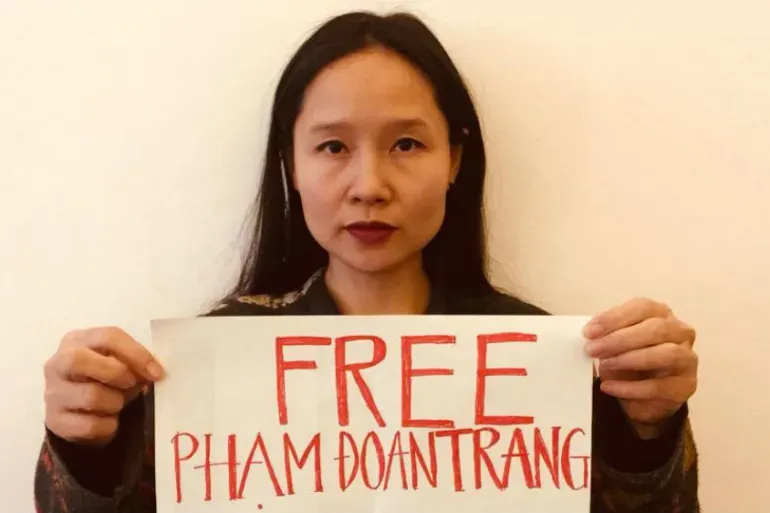Vietnam political activists and dissidents who use Facebook to express their discontentment are now being arrested. Artist Do Nguyen Mai Khoi blames the Facebook for its inability to protect freedom of expression. Legal Initiatives for VIETNAM co-founder Trinh Huu Long fills in why dissident activists and artists are having a tough time making a living in Vietnam.
- Title: Vietnam completes online clampdown
- Publish Date: January 2, 2019
- Publisher: Asean Economist
Excerpt:
Legislation requiring internet companies operating in Vietnam to remove content the one-party state regards as “toxic” has come into effect, in a move critics have called “totalitarian” information control.
The Hanoi government has clearly decided it is happy to bolster its grip on power at the expense of the freedom with which the internet is normally associated. But it remains to be seen if the heavy-handed approach will stifle investment in Vietnam’s large tech sector and stamp out the innovation that breeds best away from the censors.
Vietnam’s cybersecurity law has received criticism from Washington, the European Union and rights activists, who say it copies Chinese online censorship.
Facebook, Google and other tech firms will also have to hand over user data requested by the authorities, open offices inside the Communist state and store user data.
There are already numerous case studies showing how tech giants will trade users’ privacy rights for market access.
Political activists and dissidents who regularly use Facebook to discuss and share material on issues such as human rights and democracy now risk being arrested and charged with spreading anti-state propaganda.
Dissident artist Do Nguyen Mai Khoi blamed the internet giants rather than Vietnam’s communist authorities.
“Facebook doesn’t show what it’s doing to protect freedom of expression. It has recently locked activists out of their accounts and deleted their posts,” the 35-year-old singer-songwriter said. “YouTube has even removed my song, We Want, and now it can’t be viewed inside Vietnam,” she added.
Ten years ago Mai’s hit song, Vietnam, won her accolades.
But then Mai stopped submitting her lyrics to Vietnam’s censors and her performances were effectively banned as the police made it clear she had been blacklisted.
“The police intervened in Mai Khoi’s concerts many times. They make it very hard for her to live and to make a living in Vietnam,” said Long Trinh of Legal Initiatives for Vietnam, a magazine focussing on Vietnamese political and legal issues. “The government is very worried about her activities.”
The Communist authorities will no doubt see sacrificing the career of a pop star as a small price to pay to retain a solid grip on power.
Download:
